FCA Paid $77 Million in Civil Penalties to Sell Cars People Actually Want to Buy
Fiat Chrysler Automobiles paid $77 million in U.S. civil penalties late last year due to its failure to adhere to 2016 model year fuel economy requirements. In December, the National Highway Traffic Safety Administration (NHTSA) issued a report claiming the industry faced millions in fines from 2016 and that one manufacturer was expected to pay significant civil penalties.
You can probably guess which one. But FCA is by no means the only automaker affected by stringent fuel rulings.
Trade War Watch: Congress Tries a New Tactic to Block Auto Tariffs
With the United States’ government shutdown now over, lawmakers have an opportunity to work together as promised. Interestingly, one of the first pieces of bipartisan legislation to emerge after the federal bureaucracy resumed operations involves a plan to severely limit presidential authority to impose tariffs for national security reasons.
The Bicameral Congressional Trade Authority Act, introduced by Senators Patrick Toomey (R-PA) and Mark Warner (D-VA), along with House Representatives Mike Gallagher (R-WI) and Ron Kind (D-WI), would require the president to get approval from Congress before taking any trade actions based on national security threats. If passed into law, the bill would let the Legislative Branch effectively block the tariffs being proposed by the Trump administration on automobiles and automotive parts.
Colorado Mandates Electric Vehicle Sales, State Dealers Association Angry
The State of Colorado will be the next territory in the United States to join California in embracing electric vehicles. Democratic Governor Jared Polis has signed an executive order (his very first) proposing that the zero-emission vehicle rule be enacted no later than May of 2019. The rule would require automakers to sell more electric cars within the state each year until it reaches utopian status.
However, that could still be decades away. Thus far, Polis has only asked the state’s Department of Public Health and Environment to propose new rules to the Air Quality Control Commission over the coming months. As of now, there are no official rules stipulating how many EVs need to be sold every year. And California, which started is ZEV program years ago, estimates electric vehicles will account for between 8 and 9 percent of all new car sales within the state by 2025.
The Waiting Game: List of Automakers Standing in Line for EPA Approval Grows
As previously reported, vehicle certifications have been suspended during the current government shutdown. While this is normally a non-issue, the extended length of this federal deferment is starting to spook automakers.
Fiat Chrysler has already bemoaned the situation, as it’s currently waiting for the Environmental Protection Agency to approve its Ram Heavy Duty pickups. While the situation hasn’t become truly dire, other automakers have begun expressing concerns of their own.
Automakers Understandably Freaking Out Over 'No Deal' Brexit
With Britain’s parliament rejecting Prime Minister Theresa May’s latest Brexit deal, European automakers stand to face some strong headwinds in the near future. As of now, no clear path lies ahead. Many believe the European Union will continue playing hardball, punishing Britain for leaving. But, even if it doesn’t, loads of regulatory and trade issues must be resolved in short order to avoid problems.
There’s also no shortage of hyperbole surrounding the issue. Just this morning I heard cable news call it “the largest crisis in Britain’s history,” as if World War II never happened. A channel away, another outlet proclaimed how splendid it would be for trade between the United Kingdom and United States.
Regardless of which side of the fence you fall, there’s more at stake here than Theresa May’s job. Automakers, who like consistency above all else, worry a no deal plan for “British independence” could be tantamount to flipping the industry table. They don’t like being caught up in the uncertainty surrounding Brexit, and there appears to be an endless list of issues to contend with.
Fiat Chrysler Worried Government Shutdown Could Delay New Products
Unless you’re employed by Uncle Sam, you may not have noticed the current government shutdown impacting your life by any meaningful margin. That, of course, has not kept the media from spending the entire month scaremongering and trying to place blame (Spoiler: It’s everyone’s fault, as these shutdowns happen anytime Congress has to agree on a new budget, and partisan politics keeps them from working toward any cooperative solutions).
While this is the longest partial shutdown of the U.S. government in modern history (take that, 1996), it hasn’t been quite as terrifying as the internet or television would lead you to believe. However, we’re starting to get a little uneasy at this point — because it looks like the situation could delay the launch of the Ram Heavy Duty we’ve prattled on about for the past two days.
'A Serious Erosion of Civil Liberties': Backlash Grows Over Canada's New Impaired Driving Laws
Can you be pulled over and ordered to blow into a breathalyzer, under threat of arrest, for the simple act of returning empty liquor bottles in the middle of the day? Sure can, at least if you’re living north of the border. It happened to a 70-year-old man in Mississauga, Ontario last weekend.
As part of a massive package of laws enacted in mid-December, Canadian drivers are waking up to the knowledge that the legal standard of “reasonable suspicion” no longer exists when it comes to interactions with the police — at least when pertaining to the combination of alcohol and motor vehicles.
This week, they’re learning it’s possible to face a drunk driving charge, even if you only started drinking after you got home.
Ram and Jeep EcoDiesel Owners Stand to Earn a Nice Little Bonus in Fiat Chrysler Settlement: Report
As we told you yesterday, a settlement in Fiat Chrysler’s diesel quandary could come any day. Today, we’re telling you it could come, well, today.
According to sources who spoke to the New York Times, FCA plans to settle a 2017 Justice Department lawsuit by making a collection of 104,000 trucks and SUVs greener, while adding an average of $2,500 to owners’ wallets.
You Can Fight Oregon and Win: Five-year Battle Sparked by Red Light Ticket Ends
We’ve told you before about the legal saga of Mats Järlström, a Swedish-born man living in the green and uber progressive state of Oregon. A few years ago, Järlström found himself in the crosshairs of the Oregon Board of Examiners for Engineering and Land Surveying after performing and submitting an analysis of his town’s traffic light timing — specifically, the duration of the amber light cycle.
What ensued was a constitutional legal battle over over the ability to refer to one’s self as an expert in the field of their expertise; in this case, engineering.
This all came about after Järlström’s wife received a red light camera ticket.
Confirmed: Chevrolet's Bolt Loses Its Full Tax Credit In April, but Not the Doomed Volt
Good news for would-be Volt owners? Not really. Chevrolet’s soon-to-be-discontinued plug-in hybrid won’t live long enough to suffer the indignity of a halved federal EV tax credit. It’s dead in March, though remaining examples of the car everyone should want will no doubt linger on lots through the spring.
On Wednesday, General Motors announced, as expected, that it became the second automaker to pass the federal government’s 200,000-vehicle threshold, kicking off a three-month countdown to a chopped incentive.
Late Delivery? Tesla Says It'll Cover Your Tax Credit Shortfall
Having rung the bell on 200,000 electric vehicle deliveries in the U.S., Tesla will enter 2019 without the ability to offer a full $7,500 federal tax credit to would-be buyers. While not nearly as attractive an incentive as the same amount applied to a lower-priced EV, it’s still free public dollars. And it’s better than $3,750.
Twice this past fall, Tesla CEO Elon Musk warned customers they’d need to order by a certain date in order to ensure a delivery date prior to January 1st. After receiving a holiday earful from dutiful customers now facing late deliveries, Musk put on the Santa suit.
House Has a New Plan to Pass Self-driving Bill in 2019
Frustrated with House Democrats’ inability to push through legislation on autonomous vehicle development and testing, Rep. Debbie Dingell (D-MI) believes the new Congress needs to reassess the situation and rally together behind a tweaked proposal Senate Republicans are still willing to back.
Dingell claimed Rep. Frank Pallone (D-NJ), who will chair the Energy & Commerce Committee when Democrats take control of the House, and Rep. Bob Latta, (R-OH), who currently heads the digital commerce subcommittee, have agreed the smartest plan is to build consensus in the Senate so both chambers can deliberate on the same bill — potentially getting something done in the process.
Report: Certain Canadians Getting Boned At the Gas Pump
Barely a day goes by when the TTAC chatroom doesn’t devolve into a discussion of the weird differences between the U.S. and Canada. Chris Tonn wants to take a Nissan Micra across Canada, eating various poutines along the way, while this writer drools over certain (unavailable) civil liberties offered just 45 minutes to his south. Vast gulfs in pricing and taxation usually spring up as topic fodder, too.
Given the amount of money yours truly forks over for gas, there’s additional drool reserved for U.S. pump prices. Various taxes heap, on average, an extra 38 cents on every liter of unleaded up here. That’s an extra $1.44 for each gallon, and the roads aren’t exactly paved in gold.
Now, imagine learning you’ve been paying way too much for three straight years.
Ohio Senators Want to Know GM's EV Plans, Demand American Production
Two senators in Ohio, home to the unfortunate Lordstown Assembly plant, want answers from General Motors. Following the automaker’s announcement that it will withdraw the plant’s sole product — the Chevrolet Cruze — in March of 2019, leaving the factory’s remaining 1,500 workers out of a job, politicians on both sides of the border want to know what GM’s plans for electric and autonomous mobility mean for their constituents.
If GM’s truly planning on springing a wave of electric vehicles on American buyers, Congress wants assurances that American workers will build them.
The Government's Coming for Your Classic Car, but They Can't Take It All: Aston Martin CEO
Aston Martin CEO Andy Palmer isn’t very trusting of his government’s plan to ban all internal combustion vehicles by 2040. The 55-year-old Brit had a few things to say about the UK’s intentions last year, none of them very kind to policy makers.
Since then, it seems he’s grown even more concerned about the legions of old Astons prowling the carriageways of his fair country. With this in mind, the automaker developed a way to “future-proof” emissions-spewing classics and keep them from becoming illicit Red Barchettas sought out by agents of a puritan superstate. You’ll have to hand over your inline-six or V8 first, but don’t worry — you can put it back.
White House Wants to End EV Subsidies ASAP
White House economic adviser Larry Kudlow announced Monday that the Trump administration is seeking an end to federal subsidies on electric cars. Interestingly, the move appears to be related to General Motors’ plant closings and layoffs. The company’s restructuring plan hasn’t gone over well with policy makers or the American public, with many accusing the automaker of abusing years of tax breaks, only to reduce its workforce as a way of pursuing new technologies, businesses, and further bolstering its profit margins.
However, cutting GM out of the electric vehicle subsidies deal is more likely to impact its rivals than anything else. The company said it’s on the cusp of the EV tax credit ceiling already, with the gradual phase-out of those incentives likely to take place through 2019. Yet Kudlow pointed to the elimination of the credits as one way of punishing GM for eliminating so many jobs, echoing President Donald Trump’s threats from last last week.
“As a matter of our policy, we want to end all of those subsidies,” Kudlow explained. “And by the way, other subsidies that were imposed during the Obama administration, we are ending, whether it’s for renewables and so forth.”
Automakers Helping China Spy on Drivers: Report
As concerns grow about the Chinese government’s technology-driven “social credit” system of controlling its citizens, the Associated Press reports that the country, through regulations for electric vehicles, is requiring global automakers to supply telemetric data from their vehicles that could help the one-party state spy on its people.
American, German, and Japanese automakers, including General Motors, Ford, Tesla, Daimler, BMW, Nissan, and Mitsubishi, are among 200 manufacturers whose products must transmit location information and dozens of other pieces of driving data in real time that ultimately end up in monitoring centers that can report that data to the Chinese government.
QOTD: Pointing Fingers at General Motors?
By a wide margin, the most important automotive-related news this week has been General Motors’ impending closure of five manufacturing facilities across North America. Accompanying the closures are losses of thousands of jobs and the discontinuation of six passenger car models over the next year or so.
Who’s to blame here?
Report: GM to Close Oshawa Operations
CTV News in Canada is reporting that General Motors is shutting the doors at its Oshawa, Ontario assembly plant.
The plant, located about 37 miles (60 kilometers or so) east of Toronto, hosts about 2,500 union jobs and around 300 salaried jobs. GM has other employees in the Ontario cities of Ingersoll, Markham, and St. Catharines, but it’s not clear if any jobs in those areas will be affected. The population of Oshawa is around 159,000.
DOJ Possibly Investigating Hyundai/Kia Recall Activity
Prosecutors may be looking into a vehicle recall affecting certain Hyundai and Kia vehicles equipped with the company’s turbocharged 2.0-liter and naturally-aspirated 2.4 liter engines. It’s not an investigation to determine if a recall is needed; rather, it’s a look-see to find out if existing recalls were conducted correctly.
It remains to be seen in these early stages if any charges will be filed. If action is taken, however, the fines levied would likely cut deeply into the company’s balance sheet.
Greenwashed: UK Plug-in Fleets Enjoy the Taxpayer Perks, Never Plug In
In Europe, diesel now holds a reputation as favorable as that of the dark lord of the underworld, while electric propulsion may as well have descended from Heaven. It wasn’t this way just a few years ago.
That said, in the UK, government incentives towards green vehicle purchases have, like the U.S., been ongoing since 2011. A recent study of corporate plug-in hybrid fleet vehicles purchased with the assistance of government grants reveals many buyers were just looking to dodge diesel taxes while bilking the taxpayer for a cheaper ride. Plugging in these plug-ins was not a priority.
Trade War Watch: Were the Auto Tariffs Ever Supposed to Be More Than a Threat?
The U.S. Commerce Department has submitted draft recommendations to the White House on its investigation into whether it’s prudent to impose tariffs of up to 25 percent on imported automobiles and parts, based on the premise that they’re a threat to national security. The possibility has the industry in a tizzy, with both foreign and domestic brands lobbying against it.
Truth be told, we half assumed the entire concept was a ruse to bring other nations to the bargaining table with something to lose — a scenario where the United States could be viewed as a favorable alternative to tariff-crazy China. However, China has begun opening its market to foreign automakers while also placing a massive 40 percent duty on American autos, leaving the U.S. at a disadvantage. Now it looks as if the Trump administration may go through with everything.
Hyundai-Kia Senate Hearing Called Off; Fire Concerns Remain
A hearing that was expected to bring together representatives of Hyundai and Kia and the Senate Commerce Committee, scheduled for November 14th, has been called off.
The committee hoped to gleam information and answers on reports of engine fires in certain Hyundai/Kia products — a long-burning issue, pardon the pun, that’s increasing ever greater attention, especially from public safety groups. Recent media reports made it look like representatives didn’t plan to attend.
Ad Cops Slap Nissan for Potentially Misleading Charging Info
The UK’s Advertising Standards Authority (ASA), like the fictional “phone cops” of WKRP fame, seem to be everywhere in that country, keeping tabs on everyone’s every move. As we told you last month, in the UK, commercials are not even allowed to show frustrated office workers getting behind the wheel of a Ford Mustang, even if they’re shown driving sedately once the car leaves the garage. Dangerous influences lurk everywhere.
Britain’s ad cops are at it again, only this time there’s some meat on the bones of the complaint. Automakers often play fast and loose when it comes to describing the capabilities of autonomous vehicle functions, but electric vehicles are another area fraught with potential misleading info. Throw pricing and fuel economy into that group, too. Nissan recently ran afoul of ASA watchdogs after one of its ads suggested owners could partly recharge their vehicles in a hurry. Of course, this is technically a true statement.
What resulted was essentially a battle over the word “could.”
Midterm Elections Add Ticking Clock Element to Congress' Self-Driving Car Bill
It looks like Congress’ new self-driving bill might have to wait until a new batch of unmentionables plant their collective rear ends in the seats populating Capitol Hill. Already passed in the House, the SELF DRIVE Act has managed to garner bipartisan support — a true miracle in these troubled times.
However, it’ll have to spread wings if it wants to be signed into law before year’s end. The midterm elections could stymie everything and force Congress to start all over again. A likely prospect, considering the Senate is still going over the bill.
“This entire process has been an incredible feat of bipartisanship,” Greg Rogers, director of government affairs at Securing America’s Future Energy, told Bloomberg. “Attempting to recreate a bill that’s this ambitious and this significant would be like trying to catch lightning in a bottle all over again.”
QOTD: Driving Down Educational Memory Lane?
Each one of you here in the peanut gallery learned to drive at one point or another. And whether that was via a proper driving school, or, perhaps for the older types, at the wheel of a friend or relative’s car, the memories are there just the same. Today we talk driver’s education and the car which withstood your naive mistreatment. It’s story time.
Automakers Ready to Rock When New NHTSA Headlight Rules Arrive
The National Highway Traffic Safety Administration announced earlier this month that it was willing to considering changing the rules that govern automobile headlights. Now in a comment period before its official review, the proposal would permit automakers to install and enable adaptive driving beam headlights on new cars sold in the United States. While some automakers are preparing themselves for the change, most have been ready for ages.
One one hand, this proposed change should help lousy drivers from burning out your retinas on a lonesome country road. But, by the same token, you may no longer have the delicious opportunity to blast them with the brights once they’re within a few feet of your car to let them know to lower those damned high beams.
Just kidding, that would be illegal. Federal mandates require all drivers to dim their headlights when approaching within 500 feet of an oncoming vehicle or when approaching a vehicle less than 300 feet ahead. Of course, nobody we know has ever witnessed this law being actively enforced — even though it’s probably as dangerous as moderate speeding infractions. Regardless, it’ll gradually become a non-issue if the rules change.
Going Coastal: GM Calls for Nationwide Zero-emission Vehicle Strategy
General Motors CEO Mary Barra took to the USA Today op-ed page Friday to advocate for a national zero-emission vehicle strategy — NZEV, for short. The automaker is calling for the ZEV program already in effect in California and nine other states to become law across the United States, thus making it mandatory for OEMs to field a certain number of electric and plug-in hybrid vehicles, or pay a price.
Were the proposal to became the law of the land, you can only imagine the reaction from Ford’s rival in Auburn Hills.
California Preps Formal Response in Gas War, Calls MPG Rollback 'Unlawful'
California and 18 other states plan to formally vent their grievances over the Trump administration’s proposal to freeze fuel economy standards at 2020 levels on Friday. The Environmental Protection Agency (EPA) and National Highway Traffic Safety Administration (NHTSA) have called for public comments on the matter, with the deadline taking place at the end of this week. Apparently, California wants its voice to be the last one heard.
“They are grossly derelict in not trying to move the dial forward in cleaning the air and the environment,” California’s attorney general Xavier Becerra said in a conference call with reporters on Wednesday. “The situation continues to get worse and requires action now, and not for us to stand pat.”
Fiat Chrysler Wriggles Out From Under Past-due Loan by Outwaiting the Government
It took years, but Fiat Chrysler Automobiles finally unburdened itself from the weight of an unpaid loan by waiting until the government grew tired and gave up. Not that the automaker’s pursuer ever expected to recoup the cash.
It was revealed this week that Canada, which sunk nearly $14 billion into General Motors and Chrysler during the depths of the recession, quietly wrote off a $2.6 billion (CAD) loan made to Chrysler in 2009. It’s not the last bit of money owed to that country’s government by the two automakers, but it is a major outstanding chunk. In its defence, the feds didn’t have a hope in hell of getting the loan repaid, as the company that received it no longer exists.
Brighter, More Effective Headlights Now a Step Closer
The National Highway Traffic Safety Administration might soon grant automakers a long sought-after wish. On Thursday, the agency put forward a proposal to allow adaptive driving beam headlamps on U.S. passenger vehicles.
ADB lights would solve two problems at once: insufficient roadway illumination, as well as headlight glare. Despite the existence of automatic high beams, automakers currently have to find a happy medium in the amount of low-beam light thrown ahead of the car to prevent blinding oncoming motorists. According to the Insurance Institute for Highway Safety, which recently added headlight performance to its ratings criteria, plenty of new cars fail to find the right balance.
Forget Diesel - Tough Times Now Lie Ahead for the European Plug-in Crowd
The European new car market is in a period of extreme flux. Once-dominant diesels are on the way out thanks to new regulations, looming bans, and cancelled tax incentives, with electrified vehicles poised to take over the high-MPG role.
But not everything’s rosy in the clean, green market on the other side of the Atlantic. A new, more accurate way of measuring fuel economy went into effect last month, and governments — as well as automakers — suddenly realized certain vehicles weren’t as clean as initially thought. Looking to buy a plug-in hybrid in the UK? Say goodbye to that juicy government incentive.
Getting Out the Corn Vote: Trump Proposes Lifting Summer E15 Gasoline Ban
If you’re like this writer, seeing “may contain up to 10 percent ethanol” at the gas pump leaves you frowning, then reaching for the premium nozzle. It’s not just that 91 octane helps my tiny turbo run better — I don’t like paying through the nose (as I do for all grades) for slightly less energy by volume.
Should President Donald Trump move forward with reported changes to U.S. ethanol laws, you can expect to see more corn alcohol at your local gas station. And I don’t mean Jim Beam.
NTSB Looking Into Limo Regulations in Wake of Deadly Crash
The deadliest U.S. transportation accident in the last decade occurred in upstate New York this weekend, but it didn’t involve a airliner, train, or bus. The vehicle in question was a modified 2001 Ford Excursion. All 18 occupants of the aging limo died after the vehicle failed to stop at an intersection, with two pedestrians struck and killed in the parking lot where the runaway vehicle ultimately came to rest.
In the vehicle was a group of young people, including many couples and relatives, who were headed to a birthday celebration. While limo operators are already subjected to federal oversight, the National Transportation Safety Board plans to probe existing regulations as part of its investigation.
California Prepares Counteroffensive in Great American Gas War, Asks Automakers For Ammo
California is considering a formal, public counter-proposal to the Trump administration’s proposed rollback of the existing fuel economy requirements for passenger vehicles. Gearing up for the launch, the state has requested that automakers present detailed information on their future products and explain why they’re seeking relief from fueling mandates they previously agreed to adhere to.
“They’ve never submitted to us any information that would back up those claims in any detail to help us craft a solution,” Mary Nichols, chair of the California Air Resources Board, (CARB), said in a Thursday interview with Bloomberg.
Feds Abandoning 10 Self-driving Test Sites, Sticking With Voluntary Regulation
With Honda and General Motors teaming up on a self-driving car and GM’s Super Cruise getting the green light from Consumer Reports, it’s already been a busy week for automotive autonomy — and it’s only getting busier.
The U.S. Transportation Department plans to repudiate 10 locations previously outlined by the previous administration to serve as federally recognized proving grounds for self-driving vehicle tech. But don’t think for a second that this means the noose is tightening around the neck of autonomous testing. The Trump administration is preparing a new initiative that will lead to nationwide testing from just about anyone who can cobble together a vehicle with advanced driving aids.
More Cash Could Be on the Way for California Electric Car Buyers
Just as one incentive prepares to fade away, another green vehicle bonus looms on the horizon. California is considering upping the amount of cash buyers of electric vehicles stand to gain from their state government at purchase time — boosting the subsidy from today’s $2,500 to $4,500.
The potential change comes after Tesla reached the 200,000 limit for the full federal EV tax credit in July, with General Motors and Nissan trailing not far behind.
Lighthizer: U.S. Won't Bother Waiting for Canada on New NAFTA Pact
U.S. Trade Representative Robert Lighthizer has said the United States will begin moving forward on its bilateral trade deal with Mexico at the risk of leaving Canada behind.
The nation was already given until the end of September to reach an agreement that would effectively maintain the existence North American Free Trade Agreement, but has not indicated satisfaction with the current terms. Unfortunately, the U.S. wants to ensure a deal is in place before the next Mexican president assumes office — giving it precious little time to spend on Canada after the last year’s worth of negotiations proved ineffective.
“If we push it beyond [October 1st], then we have a new negotiation with Lopez Obrador and we don’t know where that would go at all,” Lighthizer said. “It would be unfair to all the people that have been involved — certainly the U.S. workers, farmers and ranchers — to start a new negotiation with a new president of Mexico.”
Make Some Noise: Chevrolet's New Low-speed EV Warning Sound Is Either Soothing or Ominous
To this author’s ears, it’s a noise that seems to herald the arrival of the spaceships coming to take all of the world’s children to a new home in the sun. Chevrolet claims it’s supposed to feel more natural and less intrusive. Whatever your take, the new low-speed warning noise is a necessary addition to the 2019 Volt — looming federal guidelines demand it.
Expect to hear a different kind of tonal landscape once electric vehicles and plug-in hybrids make up a larger portion of the teeming vehicle masses. Hear for yourself:
All the Press: Tesla the Target of Criminal Probe, Report Claims
What a week it’s shaping up to be for Tesla CEO Elon Musk. Interestingly, if this latest report proves true, we can pin the blame for all of Musk’s misfortune over the past 24 hours on the presence of social media, and his tendency to overuse it.
According to Bloomberg, the U.S. Justice Department has opened a fraud investigation into Musk’s infamous “funding secured” tweet — the online message that kicked off a strange journey that ultimately went nowhere.
Trade War Watch: Trump Rejects Auto Tariff Deal With Europe
Earlier this year, President Donald Trump took a renewed interest in European tariffs after deciding he didn’t like what he saw. He argued it was time for the United States to consider a fresh tax on vehicles manufactured in the European Union to level the playing field. “If the EU wants to further increase their already massive tariffs and barriers on U.S. companies doing business there, we will simply apply a tax on their cars which freely pour into the U.S.,” he wrote in March.
A few months later, America floated the ridiculous-sounding proposal of abolishing all automotive tariffs between the U.S. and EU. Surprisingly, Europe was highly receptive. German Chancellor Angela Merkel even directly addressed the issue by saying she would support lowering EU tariffs on U.S. car imports. The European Union now seems willing to pursue a zero-tariff solution on automobiles.
However, Trump has since changed his tune. The new rhetoric coming from the White House is that the deal, which was originally pitched by the U.S., is no longer good enough.
White House and California Still Discussing Emission Rules, Incredibly
Considering that the Trump administration’s Safer and Affordable Fuel Efficient (SAFE) Vehicles proposal specifically calls for the revocation of California’s power to set its own emissions rules, it’s miraculous that the Golden State is still willing to discuss the issue. But here we are.
Administration officials and members of the California Air Resources Board (CARB) emerged from a meeting on Wednesday, saying they were working toward resolving their differences over vehicle emissions, interested in establishing a single national standard, and — get this — would be happy to meet again.
Tesla Buyers Reach Back Into the Public Purse After Court Ruling
We told you earlier this month that Tesla’s Canadian arm was suing the Ontario government for access to big rebates for some of its vehicles. For years, Ontario, located north of Erie, Pennsylvania, handed out up to $14,000 in taxpayer cash to electric vehicle buyers, part of its effort to support green living.
Over the years, the ceiling of eligible MSRPs varied — from unlimited, to $75k, to $150k, and back to $75k, shortly before the ousting of the previous government in this June’s election. This writer made his feelings on lofty EV subsidies quite clear.
While the cancellation of the province’s Electric and Hydrogen Vehicle Incentive Program (EHVIP) came with a grace period for buyers awaiting delivery that runs out on September 10th, it didn’t include Tesla buyers. Thanks to the automaker’s lawsuit, Tesla buyers can now grab back that $14,000.
QOTD: The State of a Scarlet Letter?
Last week’s QOTD post about states and their respective license plates generated a few comments about a particular plate issued by the state of Ohio. In today’s question, we dive a little deeper and focus solely on this Ohio plate, which just happens to be more unique than every other license plate in use today.
Fueling the Opposition: EPA Staff Had Serious Reservations About CAFE Rollback Proposal
Staff at the Environmental Protection Agency had major disagreements over the decision to rollback corporate average fuel economy (CAFE) standards for the coming years, according to documents released last week. The matter echoes an event in May where science advisers for the EPA claimed the agency had ignored its own research in order to rationalize the push to relax fuel targets.
Both items have given ammunition to critics of the new proposal to claim the choice was politically motivated and based upon shoddy, biased research. Interesting, considering that’s exactly what the current administration said about the earlier decision to make them more stringent.
Led by the National Highway Traffic Safety Administration and backed by EPA, the current proposal seeks to keep fuel economy standards at 2020 levels — rather than continuing to elevate them. The arguments made for the move revolved around existing consumer preferences and saving lives. However, some of the agency’s staff seemed to be concerned with the NHTSA’s data and claimed it had overstepped by including the EPA in documents it didn’t approve of.
Documents Show Volkswagen CEO Diess Knew About Illegal Devices
Unsealed documents from a German prosecutor’s office shed light on current Volkswagen CEO Herbert Diess’ knowledge of the costly diesel emissions scandal. Back in late July, 2015, Diess, having just taken the helm of the VW brand after arriving from BMW, sat in on a fateful meeting, German magazine Der Spiegel reports.
It seems that, for the executives at that table, the key to avoiding prosecution depends on how dumb they can claim to be.
Suing for Incentives: Tesla Doesn't Like the Way Ontario's Treating It
In June, Ontario — the place just over yonder from Detroit and Buffalo — switched governments for the first time in 15 years. As part of his planned overhaul of the province’s finances, newly minted leader Doug Ford announced the cancellation of an electric vehicle rebate program that handed up to $14,000 to buyers of green cars.
Hardly an appropriate use of taxpayers’ dollars in a place where the debt’s approaching a third of a trillion dollars, the government implied. Ford axed the rebate last month, with buyers allowed to accept the former perk until Sept. 10th. Sorry — almost all buyers.
EPA and NHTSA Officially Release Fuel Economy Plan, California Decidedly Pissed
After months of discussion, circulating drafts, and arguing with the State of California, the Environmental Protection Agency and National Highway Traffic Safety Administration formally unveiled their plan to rewrite the existing corporate average fuel economy (CAFE) rules and replace them with something far less stringent.
The proposal would freeze the presiding standards in 2020 under the “Safer Affordable Fuel-Efficient (SAFE) Vehicles Rule for Model Years 2021-2026 Passenger Cars and Light Trucks” plan, which is a mouthful.
It also moves to revoke California’s authority to set its own mandates, as predicted. The Golden State made it clear that it wants to maintain the Obama-era limits. However, the proposal includes a section emphasizing the importance of a single national standard, saying it would seek to withdraw the waiver granted to California in 2013.
“Attempting to solve climate change, even in part, through the Section 209 waiver provision is fundamentally different from that section’s original purpose of addressing smog-related air quality problems,” reads the proposal. “When California was merely trying to solve its air quality issues, there was a relatively-straightforward technology solution to the problems, implementation of which did not affect how consumers lived and drove.”
States' Rights: EPA Seeks '50-State Solution' for Fuel Rules, California Happy to Settle for 16
Andrew Wheeler, the acting head of the Environmental Protection Agency, said the United States needs a single standard for fuel efficiency for cars and trucks on Tuesday. It’s a sentiment shared by Mary Nichols, head of California Air Resources Board, but it’s likely to put the two at odds. Wheeler said the pair shared that singular goal based off a meeting held last week, but California isn’t seeking the same benchmarks as the current administration.
The state objects to the EPA’s plan to weaken Obama-era efficiency targets, and is currently in the midst of a political and legal battle with the agency. However, Wheeler confirmed that, under his watch, the group would continue seeking a “50-state solution.”
Feds to Big Auto: Spill It
The U.S. Commerce Department wants automakers to whisper in its ear. And by whisper, we mean fill out a 34-page questionnaire detailing all their secrets — the nitty gritty of product planning, suppliers, and finances not already disclosed in public filings — under threat of financial penalty or imprisonment.
As one would assume, this latest chapter in the Commerce Department’s investigation into the possibility that imported autos pose a national security threat to the U.S. isn’t going over well.
NHTSA Deputy Administrator: There's No Need to Regulate Autonomous Cars
Heidi King, deputy administrator of the National Highway Traffic Safety Administration, claims it’s too soon to begin imposing rules on self-driving vehicles. Thus far, the NHTSA as taken a supremely lax posture on handling autonomous vehicles in the hopes that a softer touch will assist in their swift development.
However, a cluster of fatal incidents involving advanced driving technology created fresh paranoia within the government.
While the argument could be made that those accidents demand a response from federal regulators, it’s also clear the government doesn’t have a firm grasp on the technology. Likewise, there’s little consensus among automakers that have only recently begun discussing how these vehicles should be standardized, and loads of conflicting opinions exist on the matter of safety. In the short term, advanced electronic aids allow motorists to become worse at driving. But, if fully autonomous vehicles function as intended, their long-term safety benefits could be immense.
The NHTSA claims the resulting confusion means it’s too early in the process to make any kind of definitive rulings.
QOTD: Who Should Pay for Your New Car?
As comedian and secret smart guy Norm Macdonald states during his standup routines, “Now, I don’t want to get political, but…”
Of course, Norm then trails off into a topic that’s completely removed from politics, like waiters using a sexualized tone while describing succulent desserts. I’ll keep it toned down here, lest an uproar ensues. From time to time, the actions of governments raise questions pertaining to vehicles that we can discuss without freaking out, and this happens to be one of those times.
Anyway, it turns out I’ll no longer be paying for a minute portion of someone else’s Tesla purchase.
Should Police Have the Ability to Track and Disable Self-driving Vehicles?
Autonomous vehicles have created an endless series of unanswerable questions. As the technology continues to advance, decisions on how best to implement it have not. We’ve yet to discern who is liable in the event of an accident, how insurance rules would change, if they can coexist effectively with traditional automobiles, how they will impact vehicle ownership in the long term, and the infrastructure necessary to ensure they’ll function as intended.
There’s also a myriad of security concerns involving everything from the very real prospect of vehicle hacking to automakers selling the personal information of drivers. Both of those topics are about to come to a head as automakers continue shifting toward connected vehicles.
In March, the U.S. Transportation Department met with auto industry leaders, consumer advocacy groups, labor unions, and others in an attempt to navigate the minefield that is autonomous integration. The department previously hosted similar roundtable discussions in December after releasing the new federal guidance for automated driving systems, called “ A Vision for Safety 2.0.” That guidance freed up automakers and tech firms to test self-driving vehicles with fewer regulatory hurdles to cope with.
However, the December report seemed to focus mainly on how little everyone outside the industry understands the new technology.
Ford Promoting Female Drivers in Saudi Arabia, Gifts Mustang GT to Activist (As Others Remain Jailed)
The women of Saudi Arabia have been under a strict no-driving ban for the last 61 years but, thanks to a decree by King Salman, they’re back behind the wheel. Getting to that point was not easy, however. Leading up to the ban’s repeal, female activists spent years driving against the law in protest and speaking out for their right to do so. Among them was prominent women’s rights activist and retired professor Sahar Hasan Nasif, who was arrested in 2013 after posting a video of herself driving.
Ford, which has taken an interest in the cause, promised her a new Mustang after it was announced Salman would give women the right to drive and apply for a license without a male guardian. The new laws came into effect on June 24th, and Ford shipped the vehicle to a dealership in Jeddah.
Nasif tweeted previously that the Mustang was her favorite vehicle and that she was excited to purchase a yellow example when the time came, prompting Ford to give her one on the house.
Endless Pressure and Public Scandal Leads to Pruitt's Resignation as EPA Head
Environmental Protection Agency Administrator Scott Pruitt, who spearheaded the Trump administration’s initiative to roll back Obama-era fuel economy standards for light vehicles, has resigned. Even after assuming the position, Pruitt remained a tough sell as head of the EPA. His stance on climate change was uncharacteristic of any modern-day environmentalist and he seemed utterly bent on corporate deregulation to bolster profits and stimulate the economy.
Then came a flurry of scandals stemming from frivolous spending habits, improper use of authority, and possible business ties that would inhibit his ability to act in an unbiased manner. Numerous federal investigations were launched into these matters.
While a number of the impropriety claims came from political opponents actively hunting for gaps in his armor, let’s face it, Pruitt hasn’t been making things particularly difficult for them.
U.S. Gives German Auto Industry Zero-tariff Proposal, Merkel Receptive
The fresh threat of new automotive and parts tariffs from the United States has everyone up in arms. We recently published an exhaustive list of comments manufacturers and local governments made to the U.S. Commerce Department. They, along with suppliers, universally despise the idea and are doing everything in their power to convince the Trump administration to reconsider. Many are even discussing the grim prospect of layoffs and suspending investments.
However, the president remained firm on doing whatever it takes to bolster domestic production and U.S. automotive exports while the world tried to make sense of his strategy. Was this a madman playing hardball and gambling with the industry’s future, or the work of a master dealmaker forcing others to come to the table? Perhaps a little of both?
Earlier this week, the U.S. ambassador to Germany told German car executives that President Donald Trump would suspend threats to impose tariffs on cars imported from the European Union if the European Union lifts duties on U.S. cars. But the wildest part of all of this is that both the automakers and the German government seem to be in support of it.
Love Tariffs? Prepare to Cough up an Extra $1,800 for a Camry, Toyota Warns
Toyota’s not going silently into a potential future where tariffs are as prevalent as man buns and tattoos in a brewpub. In its submission to the U.S. Commerce Department, Toyota wants the government to know it’s a standout business, and that a tariff on imported automobiles and auto parts would backfire.
Even for vehicles built in the U.S., American buyers would face a steep price hike, Toyota claims. Care to fork over an additional $1,800 for a Kentucky-built Camry? Meanwhile, a Canadian supplier association representative warns of “carmageddon” if the tariffs come to pass.
Tariffs Would Slam the Jeep Renegade, Force FCA to Weigh Options
Jeeps smallest U.S. offering stands to be hit hard by proposed import tariffs, according to calculations from an investment advisory firm, and the volume of vehicles Fiat Chrysler brings in from outside U.S. borders would see the automaker take it on the chin.
With the Trump administration mulling a range of tariffs, the firm tabulated just how much the import duties could cost FCA. If the tariffs come to pass, expect to see fewer Jeep Renegades on your local dealer lot.
Ailing Motorcycle Industry Could Be Canary in Coal Mine for Automakers - Part Two
Last week, we discussed how the motorcycle industry’s total failure to entice new riders for over a decade has come back to bite it in the ass. Two-wheeled ownership declined drastically in the United States after the Great Recession and never really bounced back. Blame a disinterested population of youngsters with less discretionary funds and few entry-level options to consider.
I speculated that automakers could be on a similar path, despite the passenger car segment being more of a necessity for average commuters and less apt to collapse outright. But that isn’t to presume they might not be subject to similar pitfalls, and we’ve a new one to consider. Harley-Davidson, which serves as the poster child for the motorcycle industry’s current crisis, recently announced it will end all U.S. production of motorcycles sold in Europe.
Those bikes will now be manufactured overseas. The company said in a regulatory filing with the U.S. Securities and Exchange Commission that retaliatory tariffs levied by the European Union on motorcycles exported from the U.S. jumped from 6 percent to 31 percent. Harley-Davidson’s already expensive products come at an additional premium in Europe, and the the company estimates the new fines will add another $2,200 per motorcycle, on average.
Tax Credit Blues: Automakers Grimly Await a Looming Phase-out
Should Tesla hit its vaunted 5,000-Model-3s-per-week production target at the end of this month (a figure that means nothing if it can’t be sustained over the long term), the electric automaker faces another hurdle: the impending phase-out of the $7,500 federal EV tax credit.
While Tesla isn’t the only automaker staring down the barrel of this incentive loss, it’ll be the first to cross that line. Estimates place the phase-out point in July, though the taps only begin turning off two quarters after the automaker hits the 200,000 plug-in vehicles mark. Unlike some of its its electric rivals, however, the impact on Tesla won’t be as painful.





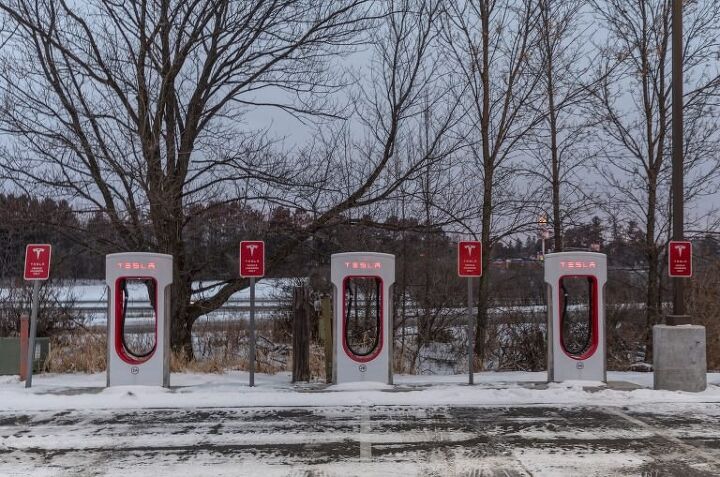
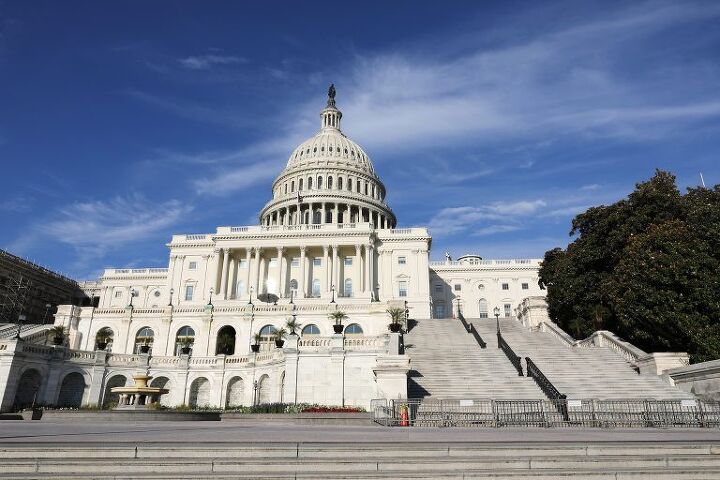

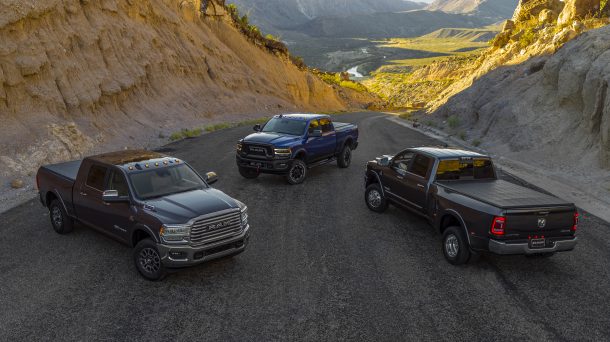

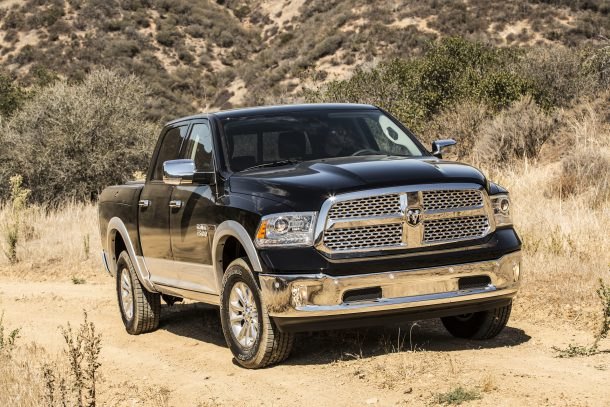

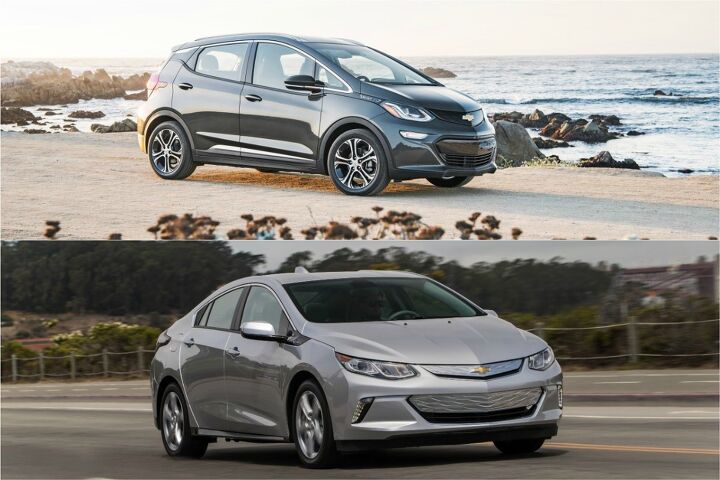
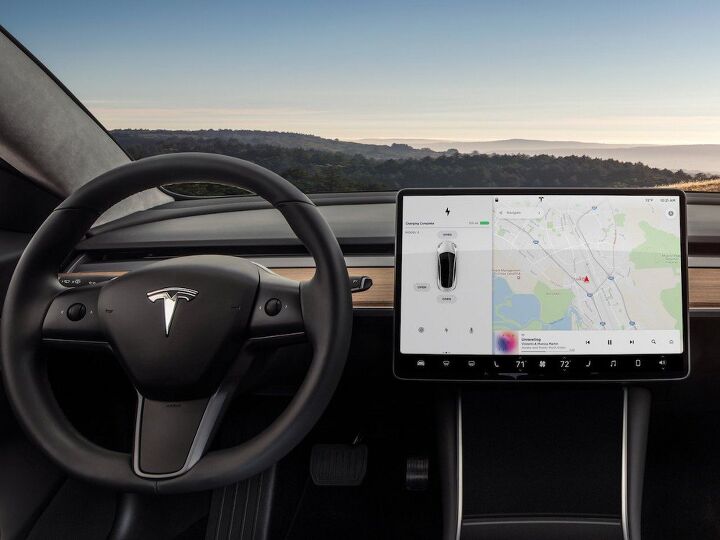

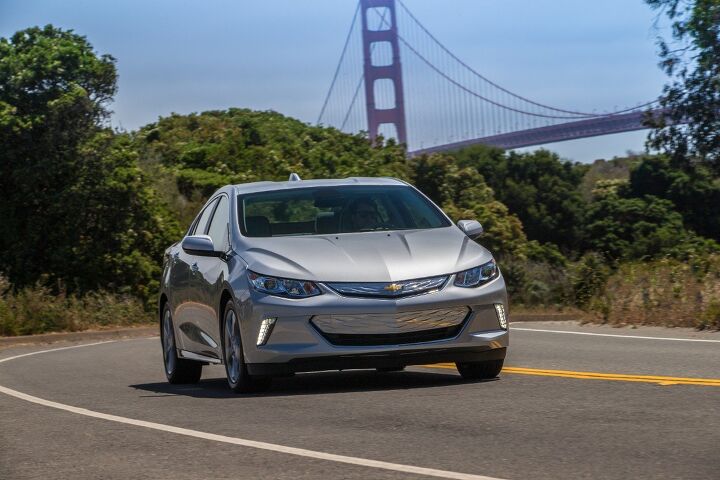








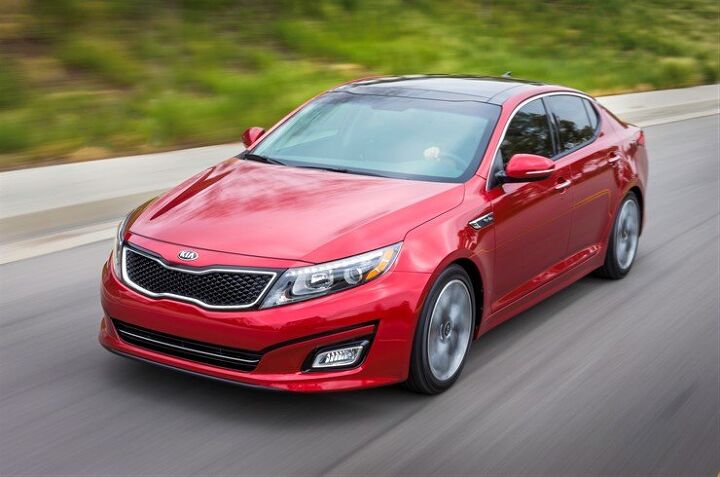














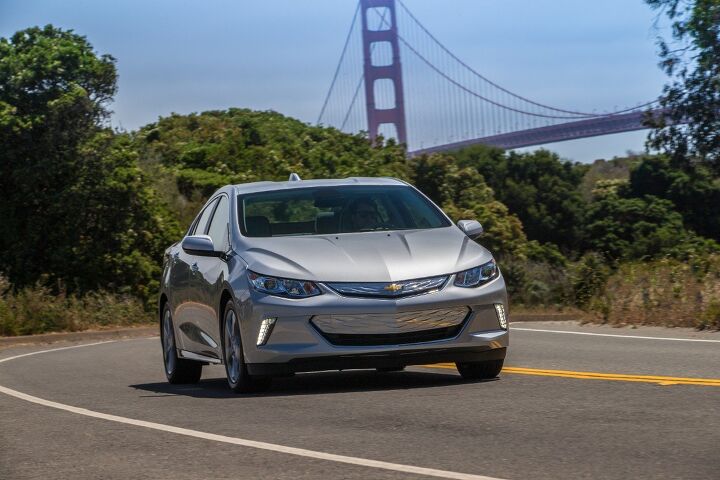

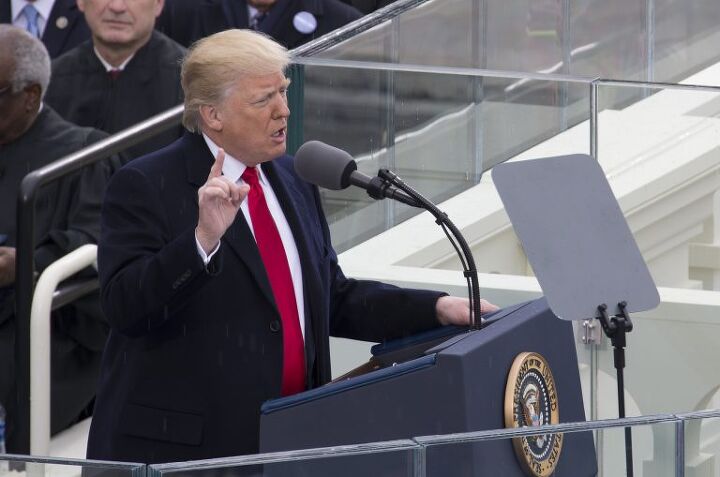




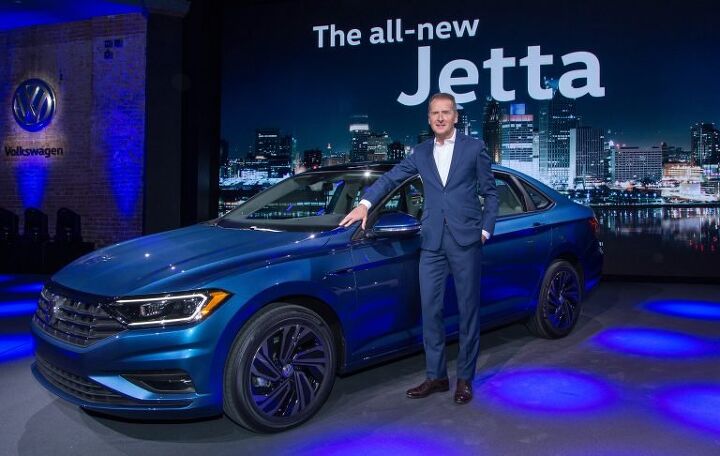



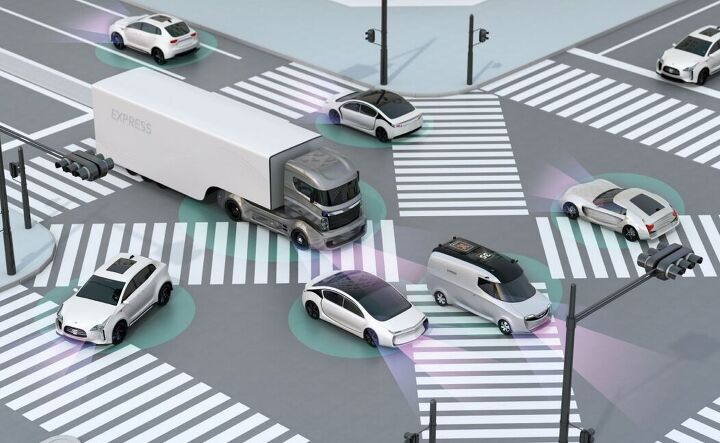



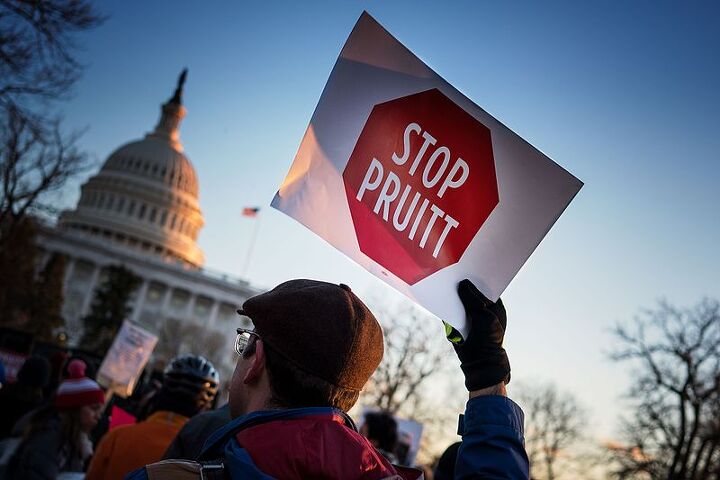
















Recent Comments